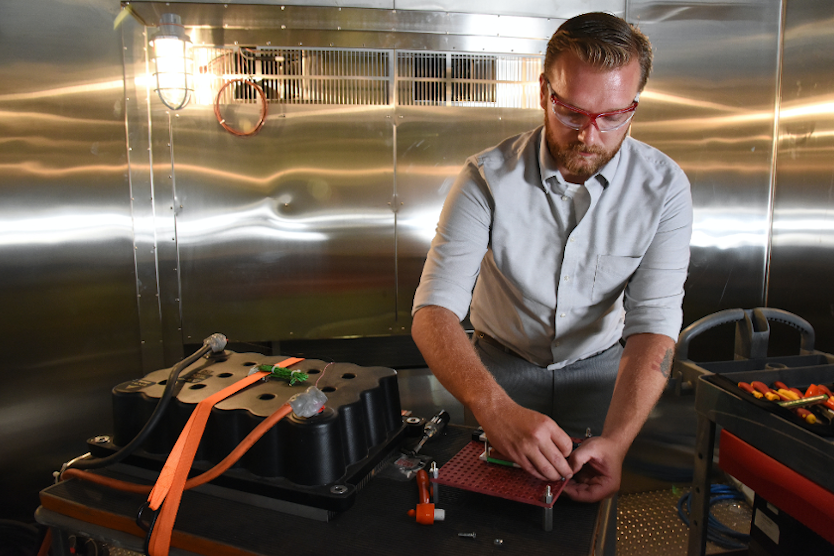
The project called “HiQ-CARB” will explore the mass production of sustainable carbon additives.
© Unsplash
There are several initiatives underway to support the production of more sustainable electric batteries within Europe in order to mitigate environmental degradation, not least originating from the European Commission’s European Green Deal. Now a joint international project called “HiQ-CARB”, which brings together the German Fraunhofer Institute for Silicate Research ISC as a lead partner with the Aalto University, Finland, and the University of Bordeaux, France, will explore the mass production of sustainable carbon additives.
Carbon black plays a vital role in enhancing the performance of batteries by improving the electronic conductivity of cathodes, achieving faster charging and discharging. The problem is that conventional methods of producing carbon black are highly energy-intensive. The researchers are therefore proposing to replace the carbon with greener, high-quality acetylene black.
A combination of carbon nanotubes, made from renewable bioethanol feedstock, will be used along with acetylene black beads. The result is lower carbon emissions and improved resource efficiency with no loss of performance, in fact, there is evidence that the new materials will improve performance.
“In order to sustainably supply the growing European battery industry with high-quality conductive additives, CO2- and resource-efficient carbon materials have to be created, validated and economically produced in a sufficient volume in Europe” says the project’s coordinator Dr Andreas Bittner from Fraunhofer ISC, setting out the aims of HiQ-CARB in a press release.
HiQ-CARB is funded by EIT RawMaterials, a platform supported by the EU which was set up to secure the supply of sustainable raw materials within the continent. Commercial production partners include ARKEMA GmbH and Orion Carbons GmbH.


